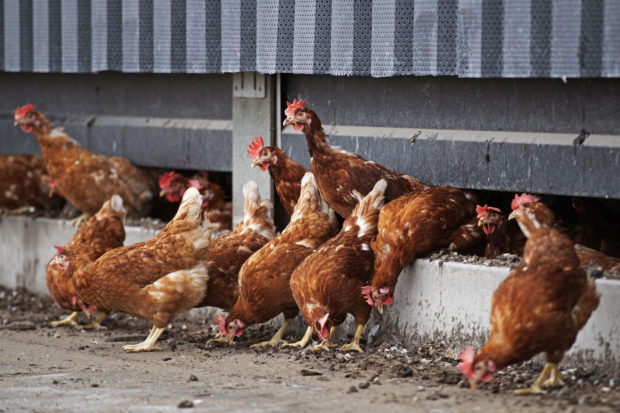MANILA, Philippines — Human-to-human transmission of the avian influenza is very rare, an infectious disease expert said Thursday after China recorded the first human infection with the H3N8 strain of bird flu.“‘Yung avian influenza is common, marami na talagang avian influenza na dumaan. This is purely a type of influenza na sa mga bird lang, sa mga avian, and rarely it can infect humans,” Dr. Rontgene Solante, chief of the Adult Infectious Diseases and Tropical Medicine unit of the San Lazaro Hospital in Manila, said in an interview on ABS-CBN’s Teleradyo.
(Avian influenza is common. There are many strains of avian influenza that occured. This is purely a type of influenza for birds, and rarely can it affect humans.)
There are strains of the avian influenza, however, that can cause more severe infection in humans, according to Solante.
“So halimbawa, from an avian to a human, it is possible na mahawaan ang tao but rarely ‘yung positive na human will transmit it to another human,” he said.
(So for example, it is possible that a human may be infected by a bird, but it is rare that a positive human can transmit it to another human.)
“Very rare ang human-to-human transmission. It’s always an avian and then ‘yung mga nagtrabaho sa mga poultry na mayroong nagkasakit na mga manok na mayroong ganitong avian virus, pwedeng mahawaan,” he added.
(Human to human transmission is very rare. It’s always a transmission from an avian, and those working in a poultry with chickens with the avian virus may be infected.)
China’s National Health Commission earlier reported that the H3N8 strain of bird flu was detected in a four-year-old boy from the central province of Henan. The boy reportedly had fever and exhibited other symptoms on April 5.
According to Solante, the tendency of humans to be infected with bird flu is “based on repeated exposure.”
“It is important on the part of the agricultural farms na mamonitor ang domestic animals especially those na potentially infected by the avian influenza para hindi pumunta sa tao,” he said.
(It is important for farms to monitor domestic animals especially those potentially infected by the avian influenza so that it will not be transmitted to humans.)
